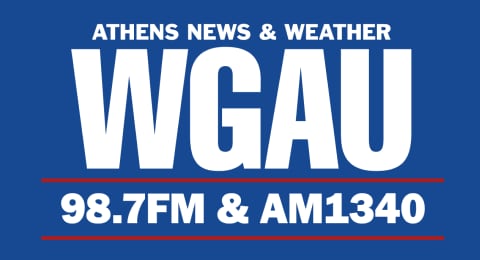WASHINGTON — The House voted on Friday on a $1.2 trillion bill that would keep the government funded through September as it faces a deadline at midnight to avoid a partial shutdown. The Senate then passed the bill early Saturday morning. President Joe Biden signed the bill Saturday afternoon.
Unveiled earlier this week, the 1,012-page spending package had support from Biden; House Speaker Mike Johnson, R-La.; and Senate Majority Leader Chuck Schumer, D-N.Y. It includes six annual spending bills that fund about three-quarters of the government, The Washington Post reported.
The House narrowly passed the bill in a 286-134 vote on Friday morning. The bill needed a two-thirds majority to move on to the Senate, where it passed by a 74-24 margin early Saturday.
Biden signs bill to avert government shutdown
Update 1:19 p.m. EDT March 23: Saturday afternoon, President Joe Biden signed the $1.2 trillion spending bill that would keep the government funded through September. The House passed it on Friday and the Senate passed it in the early morning hours Saturday.
The bill was signed at Biden’s house in Wilmington, Deleware, according to The Associated Press.
“The bipartisan funding bill I just signed keeps the government open, invests in the American people, and strengthens our economy and national security. This agreement represents a compromise, which means neither side got everything it wanted. But it rejects extreme cuts from House Republicans and expands access to child care, invests in cancer research, funds mental health and substance use care, advances American leadership abroad, and provides resources to secure the border that my Administration successfully fought to include. That’s good news for the American people,” Biden said in a statement from the White House.
“But I want to be clear: Congress’s work isn’t finished. The House must pass the bipartisan national security supplemental to advance our national security interests. And Congress must pass the bipartisan border security agreement—the toughest and fairest reforms in decades -- to ensure we have the policies and funding needed to secure the border. It’s time to get this done,” Biden continued.
-- Jessica Goodman, Cox Media Group National Content Desk
Senate passes bill after deadline passed
Update 4:50 a.m. EDT March 23: The Senate passed the spending bill package early Saturday morning, just after the midnight deadline that had been set to avert a government shutdown, The Associated Press reported.
The vote was 74-24.
The White House said that the Office of Management and Budget had stopped planning for a shutdown of government agencies because it was confident that the bill would be passed.
“Because obligations of federal funds are incurred and tracked on a daily basis, agencies will not shut down and may continue their normal operations,” the administration said.
Right before the midnight deadline, Senate Majority Leader Chuck Schumer said, “It’s been a very long and difficult day, but we have just reached an agreement to complete the job of funding the government. It is good for the country that we have reached this bipartisan deal. It wasn’t easy, but tonight our persistence has been worth it.”
It heads to President Joe Biden for his signature. He is expected to sign the spending bill on Saturday.
-- Natalie Dreier, Cox Media Group National Content Desk
White House to Senate: ‘There is still time to prevent a partial shutdown’
Update 3:50 p.m. EDT March 22: The White House on Friday urged the Senate to quickly pass a $1.2 trillion spending bill after it was approved by the House earlier in the day ahead of a looming deadline to avoid a partial government shutdown.
If the bill is not signed by Biden by midnight, it will trigger a shutdown over the weekend, The Wall Street Journal reported.
“There is still time to prevent a partial shutdown,” White House press secretary Karine Jean-Pierre said Friday. “The House passed the funding bill, and the Senate still has time to pass it today. And there is no reason for it to not move forward.”
She added that the White House wants “to see the Senate move quickly on this.”
“We’ve always said that this is about programs that American families need,” she said. “And so we should be able to avoid a partial shutdown. It is possible to do so.”
Johnson: Spending bill was ‘the best achievable outcome’
Update 1:45 p.m. EDT March 22: Johnson called the passage Friday of the $1.2 trillion spending bill “the best achievable outcome in a divided government” in a statement released after the vote.
“During the FY24 appropriations process, House Republicans achieved conservative policy wins, rejected extreme Democrat proposals, and imposed substantial cuts while significantly strengthening national defense,” he said.
The statement came after Rep. Marjorie Taylor Greene, R-Ga., filed a motion to remove Johnson from his role as House speaker, pointing to the bill and its tepid support from Republicans. A majority of GOP members in the chamber — 112 to 101 — voted against passing the bill.
Johnson has not commented on Greene’s motion.
Rep. Greene moves to oust Johnson over government funding bill
Update 12:15 p.m. EDT March 22: Rep. Marjorie Taylor Greene, R-Ga., on Friday filed a motion to remove House Speaker Mike Johnson, R-La., from his leadership role, saying he “betrayed our conference” and the American people.
“This bill was basically a dream and a wish list for Democrats and for the White House,” she told reporters on Friday. “It was completely led by Chuck Schumer. Not our Republican speaker of the House, not our conference, and we weren’t even allowed to put amendments to the floor to have a chance to make changes to the bill.”
She framed her motion to vacate as “more of a warning and a pink-slip.”
“I do not wish to inflict pain on our conference and to throw the House in chaos, but this is basically a warning and it’s time for us to go through the process, take our time and find a new speaker of the House that will stand with Republicans and our Republican majority instead of standing with the Democrats,” she said.
She declined to put a timeline on next steps in the process, saying only that “the clock has started.”
Last year, the House ousted then-Speaker Kevin McCarthy, R-Calif., on a motion to vacate filed by Rep. Matt Gaetz, R-Fla., after McCarthy worked with Democrats to pass a funding bill.
House passes spending bill to keep government open
Update 11:50 a.m. EDT March 22: The House voted 286-134 in favor of passing the spending bill with the support of 185 Democrats and 101 Republicans.
House approves second funding minibus. Majority of Republicans vote against it pic.twitter.com/xxT5NfTEXa
— Jamie Dupree (@jamiedupree) March 22, 2024
Most of the votes against the bill came from Republicans. It needed a two-thirds majority — or 281 votes — to pass, a threshold it narrowly met.
Voting starts in the House
Update 11:15 a.m. EDT March 22: The House began voting on whether to pass the $1.2 trillion spending bill just after 11 a.m., according to officials.
LIVE on C-SPAN: House votes on $1.2T six-bill minibus for FY 2024.
— CSPAN (@cspan) March 22, 2024
Two-thirds majority needed for passage. https://t.co/8BTcUTIGPf
The bill needs a two-third majority, or about 288 votes, in order to pass and head on to the Senate, CNN reported.
Original report: Republicans said they managed to cut spending on foreign aid and nongovernmental organizations serving migrants while also taking back funds from the Internal Revenue Service. In a statement Thursday, Johnson said House Republicans “have achieved significant conservative policy wins, rejected extreme Democrat proposals, and imposed substantial cuts to wasteful agencies and programs while strengthening border security and national defense.”
Democrats said they were able to block cuts aimed at education and health programs. Speaking on the Senate floor on Thursday, Schumer said the bill “avoids draconian Republican cuts on major Democratic wins that help American families, American workers (and) America’s national defense.”
If passed, the bill would end a budget battle that began at the start of the current fiscal year on Oct. 1, according to Reuters. If it fails to gain enough votes to make it to Biden’s desk, a partial shutdown will instead begin, with thousands of government employees seeing furloughs, the news agency reported.
Passage of the bill is expected to go down to the wire and could shutdown the government over the weekend if it fails to make it to the president for his signature before the midnight deadline, The Wall Street Journal reported.
Since October, the government has been running on a series of continuing resolutions — temporary spending bills that allow the government to function with spending levels and priorities unchanged from the previous year.
Earlier, Republicans ousted then-House Speaker Kevin McCarthy, R-Calif., in part because of his decision to work with Democrats to avert a government shutdown last year.
© 2024 Cox Media Group

:quality(70)/cloudfront-us-east-1.images.arcpublishing.com/cmg/XGGGJM5DPRAEPNRWE2JYL2KAZU.jpg)
:quality(70)/cloudfront-us-east-1.images.arcpublishing.com/cmg/XGDFDHGENJG5HLIZP3Z6CGOOTM.jpg)
:quality(70)/cloudfront-us-east-1.images.arcpublishing.com/cmg/SIUWJEWDGRAO3FEFUERUOGN7FA.jpeg)
:quality(70)/cloudfront-us-east-1.images.arcpublishing.com/cmg/IFF47WETYRBAPE45O5NKODONII.jpeg)
:quality(70)/cloudfront-us-east-1.images.arcpublishing.com/cmg/V7KBVAOCMBGCPLOINTNULB7GJE.jpg)
